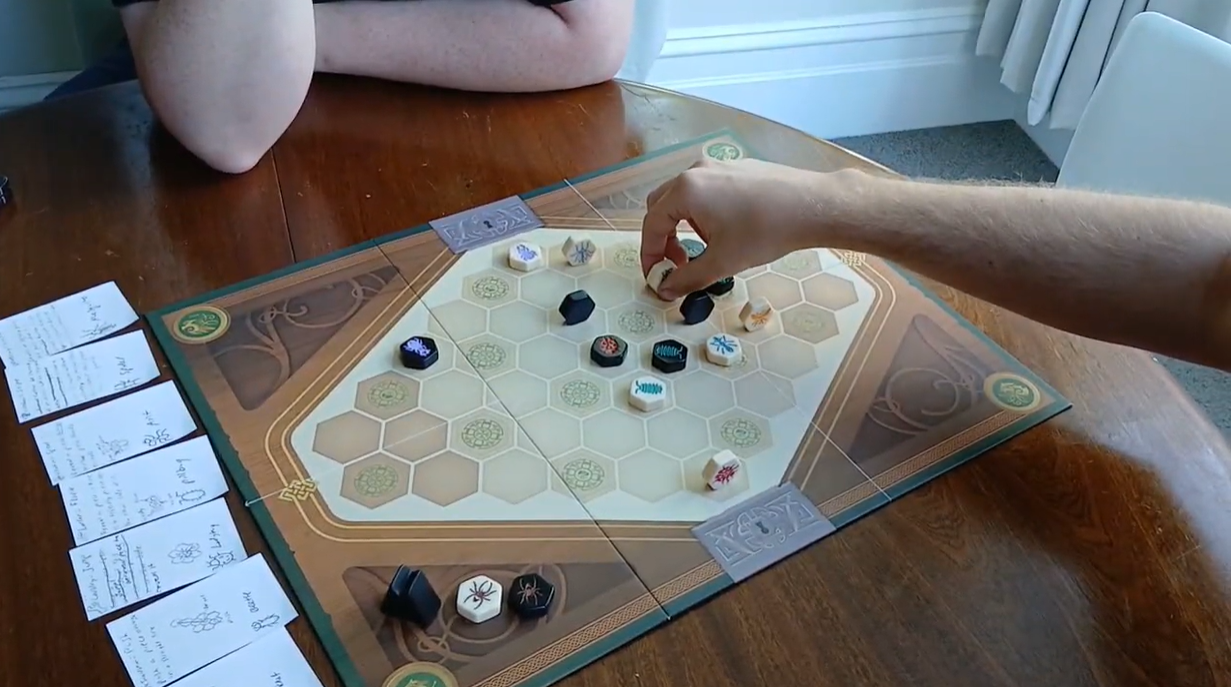
18th of May 2025
Quite often creatives get asked: "Where do your ideas come from"? It's a silly question really, everyone has ideas, which can come from seemingly nowhere or from all manner of different places. But some people do seem genuinely amazed at the ideas that other people have or the things that they come up with. Plenty of people have interesting or incredible ideas, but they don't think that their ideas are interesting or incredible because they are having them on a regular basis.
In other words, everyone has ideas that are brilliant to other people, but not in their own estimation. When people ask: "Where do your ideas come from?" I think what they are really asking is "what was the starting point for your creative process?"
One possible inspiration is frustration with something else, a need to reinvent it in a manner that aligns more closely with what you want from that thing. This is how Rogue's Masquerade came about.
I have a problem with chess. Although I can appreciate the skill and pattern recognition of the best chess players, I find that the game is a little too determinstic. If you wanted to, you could play the same opening every time and (provided you learnt the variations that the opponent could play) would start every single game in a nearly identical way. For some people this isn't a problem, but I prefer my games with more variety. In the same vein, it is highly unlikely that a new player to chess will ever beat someone with more experience. This can be a good thing, if pure skill expression is what you seek, but it can also be a real barrier for entry for those newer players.
For my first board game, I set myself the following restrictions:
1. The game is for 2 players only.
2. The game should be small in scope/playtime.
3. The game should have few components
With this in mind, I wanted to create a game that had more variability than chess. Or at the very least, felt like it had more variability. However, when considering options for randomisation, different starting setups, etc... the game quickly breaks the 3rd rule of having limited components.
Instead, I decided the game should involve bluffing. Hidden information lends itself well to replayabiltiy, as players learn not just the game, but how to read each other. In addition, it creates uncertainty and variation, without leading into pure randomization like dice or cards can. It allows for players to still express their skill in bluffing/reading the other player, but still provides chances for the less experienced player to pull off an upset. I have had players decsribe the game as "a mix of Chess and Coup" which is absolutely perfect in my eyes - a tactical game with elements of bluffing and lying to the opponent.
Don't ever feel that your idea will come from a single "aha", or that it has to feel interesting or incredible to you. If something inspires you or you have an interest in creating something, then chances are it will be interesting or incredible to someone else who has never had that same thought as you. Place some restrictions on your creative process and the idea will begin to develop into something far more fully formed and intentional.
This is how I had the "idea" for Rogue's Masquerade. Not a single "aha" moment, but a series of choices and restrictions that led me to create the specific ruleset and components that I have ended on.